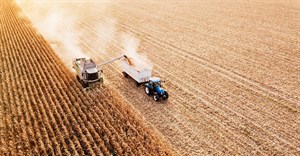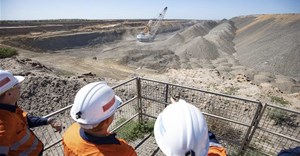Trending



 Clothing brand Curve Gear opens new store in Tygervalley CentreLindsey Schutters
Clothing brand Curve Gear opens new store in Tygervalley CentreLindsey Schutters Sabre EMEA 2024 Awards: Razor PR, Retroviral top SA agenciesDanette Breitenbach
Sabre EMEA 2024 Awards: Razor PR, Retroviral top SA agenciesDanette Breitenbach
Elections 2024
The farmer's circle - demystifying issues

Amid the ever increasing issues and challenges currently facing the Agricultural sector in South Africa, farmers could run the risk of wasting precious resources and time by placing too much emphasis on economic and global issues that they have little or no control over.
On the other hand, in the case of the average farmer as a price taker, some of these issues could easily stack up and have a direct impact on operations. This is further exacerbated by external factors that we are currently dealing with, such as severe drought and the land reform landscape, which came under the spotlight recently when Rural Development and Land Reform Minister, Gugile Nkwinti's announced his latest budget vote.
Nonetheless, given the diversity and magnitude of issues currently facing the sector, it is important for the agricultural community to 'cut out the deadwood' and focus its energy and resources on critical issues that it can immediately influence and control.
Critics may argue that in theory, achieving such an outcome is easier said than done. So how can this be achieved?
According to Steven Covey's book titled "Seven Habits of highly effective people" there are two circles that contain our lives:
• The Circle of Concern - relates to things that we have no, or very little direct control over. It encompasses all the things we care about and range from our personal concerns to our national and global concerns.
• The Circle of Influence - relates to things we have control over, which is normally smaller than the Circle of Concern.
When it comes to agriculture, unfortunately when we react, we run the risk of doing so only with the Circle of Concern in mind. This is energy tapping since we have little or no control over the issues concerned. It is argued that if you focus on the aspects in the Circle of Concern and neglect the Circle of Influence, the Circle of Influence will eventually get even smaller. This could lead to frustration, perceived helplessness and anger because you can change very little in your Circle of Concern.
Applying Covey's methodology in Agriculture
Within the farm gate level, the key is to begin by focusing on problems that we have direct control over - problems involving our own actions on the farm. Focus on the farm's strategy which should promote food production and be aligned to your interim plans as we near a new season.
• Up your record keeping and measuring (what doesn't get measured doesn't get managed)
• Make sure you have analysed the farm's cash flow forecast in detail.
• Where necessary consider restructuring/optimising your balance sheet;
• Consider the most appropriate product mix for your farm based on market conditions, the changing climate, your soil quality, and moisture content.
• Ensure your mechanisation is adequate and serviced;
• Critically look at unproductive assets;
• Maintain good labour relations;
• Ensure that you have adequate safety and security procedures in place.
What about the other burning issues arguably cemented in the farmer's circle of concern - which he has no control over?
The capacity to influence
Some critics of Covey's theory argue that we could potentially undercut our power and mistakenly place things outside our Circle of Influence - a tendency to underestimate our capacity to influence.
In this context, the farmer should make sure that the bodies which do have these issues (i.e. land reform) in their circle of influence act on the farmer's behalf by open-mindedly choosing and mandating progressive organised structures in Agriculture.
The actions of these bodies, such as ASUF, Agri SA, AFASA TLU, Agbiz, Industry organisations, the Banking Association, and various others, should address the farmer's concerns and continue with the task of sustaining commercial agriculture by negotiating the most appropriate and executable solutions.
This requires tenacity, resilience and solution driven representatives with a deep care and understanding of the strategic importance of Agriculture. Based on our participation and engagement with these organisations we are confident that these aspects are top of mind and that the expertise of the individuals involved more than adequately fit the requirement.
The industry still has potential
I think it is important to reflect and re-evaluate why Agriculture is a sound industry to remain and grow in. Recently at Standard Bank's Agribusiness roadshows, Dr.
Roelof Botha, an independent analyst, adequately in a cautious manner, highlighted the following reasons:
• We have seen positive population growth supported by sustained growth in per capita incomes, all driving the need for increased consumption and changes in diets (diet revolutions). R587 m was spent by SA households in 2014 on food;
• Add to this a strong regional growth and SA Agriculture's adoption of strong diversification of crops and products;
• The huge potential that sits in beneficiation and value chain activities within Agribusiness. This can be further fueled by potential access to DTI incentives;
• Agriculture can play a constructive role in cooperating with local authorities in maintaining infrastructure;
• Agri-tourism still has huge unlocked potential;
There is definitely a reason to stay and expand in agriculture. We need to remind ourselves that we need to focus on the direct issues that affect farming operations, and when we all focus on the aspects we can change and improve; collectively we will contribute to growth of the industry.








